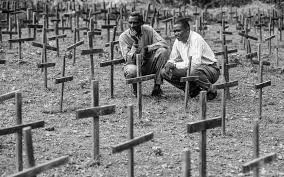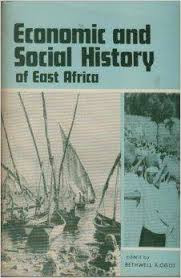
Basics concepts of Entrepreneurship management, meaning, nature and scope-Cooperative enterprise, forms of business organization-Cooperatives Vs Economic system, Principles of cooperation, Identity of SMEs. Process of organizing a SME, Nature of Management in enterprises, General Administration, Financial Operations, Marketing and Human Resource Management in Enterprises. Dynamics of Management in cooperatives, Nature and scope of professionalization of Management, entrepreneurship structure in Rwanda policy and managerial problems in Rwanda. Role of entrepreneurship in the economic development of Rwanda, Entrepreneurship - meaning types of entrepreneurs, qualities, psychological factors in entrepreneurship, Factors influencing the birth of entrepreneurs, Emergence of entrepreneurship in Rwandan industry, Entrepreneurship development–need and importance of entrepreneurship development government policy Financial and institutional support for entrepreneurship development in Rwanda. Prospects and problems of entrepreneurship development in Rwanda and Business plan preparation.
- Teacher: Dr.Alexis HAVUGIMANA
- Teacher: Dr. Ndanusa MANZUMA

This module helps the student to differentiate genocide from other crimes. It familiarizes also
the student with main causes, evolution and effects of different genocides in the world with a
particular attention to the Genocide perpetrated against Tutsi in Rwanda and how to prevent
them. It also lets students know about different conflicts and how to address them thanks to
different mechanisms of conflict resolution acquired based on human rights.
the student with main causes, evolution and effects of different genocides in the world with a
particular attention to the Genocide perpetrated against Tutsi in Rwanda and how to prevent
them. It also lets students know about different conflicts and how to address them thanks to
different mechanisms of conflict resolution acquired based on human rights.
- Teacher: Alexandre NTEZIMANA

The course is a study of the human population and relationship between environment conditions and changing human population dynamics. Students are introduced to recent patterns of human population dynamics, their consequences to the global environment systems , and subsequent uneven effects on the quality of life of diverse population. To better understand how we arrived at this current status , students will study the origins of the human species and investigate how traits specific to humans enabled their eventual increased abundance and distribution throughout the planet . students will also study how key historical events led to major demographic transitions across time . Case studies of ancient societies that either collapsed or continue to thrive will be analyzed to better understand the complexity of factors mitigating the relationships between population , environment, and well-being .Finally, in light of the projections of future changes in population growth and environment conditions, Students study recent approaches to developing a more sustainable and equitable quality of life for present and future generations around the world.
- Teacher: G. Francois NTAGANZWA
- Teacher: Drocelle NYIRANSABIMANA

- Teacher: Sebastien Dr GASANA
- Teacher: G. Francois NTAGANZWA
- Teacher: Alexandre NTEZIMANA
